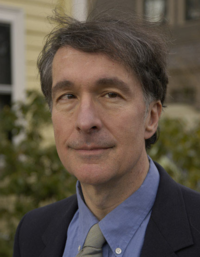Theory of multiple intelligences
In the 1980s, Harvard psychologist Howard Gardner[1] proposed that humans exhibit "intelligence" in a variety of ways unique to each individual. Still controversial, this theory resonates with teachers and instructors who must find ways to reach their students.
The Seven Intelligences
Gardner views 'intellectual competence' as related to problem-solving skills, skills enabling a person to solve problems at hand and to discover or create problems that permit acquisition of new knowledge. He focuses on the cultural context of those competences, recognizing that values differ among cultures.
Gardner writes that most people exhibit strong intelligence, or intellectual competence, of one or more of the following types, with most showing a combination of them (Gardner 1983,1993):
| First of all, try to forget that you have ever heard of the concept of intelligence as a single property of the human mind… |
| …if we are to encompass adequately the realm of human cognition, it is necessary to include a far wider and more universal set of competences than we have ordinarily considered. And it is necessary to remain open to the possibility that many—if not most—of these competences do not lend themselves to measurement by standard verbal methods… |
With such considerations in mind, I have formulated a definition of what I call an "intelligence." An intelligence is the ability to solve problems, or to create products, that are valued within one or more cultural settings—a definition that says nothing about either the sources of these abilities or the proper means of "testing" them.
|
- Linguistic – People in which linguistic intelligence dominates tend to learn through reading, notetaking, listening (via lectures), and discussion/debate. They generally have strong verbal skills, debate well, and can use their language abilities to help them lead a successful life. People with linguistic intelligence readily learn other languages.
- Logical-Mathematical – Numbers, logic, abstraction, deductive and inductive reasoning dominate. Methods of reasoning, abstraction, and scientific thinking take precedence over pure mathematics.
- Spatial – People who have spatial intelligence show aptitude in visualizing objects and mentally manipulating them. They have a strong visual memory and readily identify patterns.
- Bodily-Kinesthetic – Strengths center on movement and “doing.” Physical activities, such as sports or dance or acting, are preferred; learning takes place through doing and people with this intelligence often have an ability to translate thought into action.
- Musical – While obvious in its definition, those with this intelligence often learn best through listening (lecture). Gardner believes this intelligence is parallel to the linguistic intelligence.
- Interpersonal -- The ability to understand other people--their feelings, their desire, what motivates them. This intelligence allows people to work closely and successfully with others.
- Intrapersonal -- The ability to understand yourself--your feelings, your desire, what motivates you, and use this understanding to shape (some would say 'control') your life.
A Possible Eighth Intelligence
After the publication of his initial work, Gardner postulated the possible existence of another intelligence, Naturalist. This is the intuitive ability to draw upon the world around you and organize, as well as integrate, that information for understanding people and their cultures. People exhibiting this intelligence often exhibit strong existential and spiritual interests (also possible intelligences), concerning themselves with questions of causality ("why").
Integration
Gardner argues that none of this intelligences are "exclusive" to others. In other words, any individual does not exhibit only one intelligence. Rather, most people have various combinations of two or more (even all seven) intelligences, and use them in their daily lives when each is appropriate.
Although they are not necessarily dependent on each other, these intelligences seldom operate in isolation. Every normal individual possesses varying degrees of each of these intelligences, but the ways in which intelligences combine and blend are as varied as the faces and the personalities of individuals.[2]
Acceptance
Gardner's theory is still being argued within the psychological academic community.[3] Clearly and accurately defining, documenting and measuring these intelligences is difficult. However, Gardner's theory has been widely embraced within the educational community, especially by classroom instructors who see various abilities of individual students that match Gardner's descriptions.[4] Educators have often found that addressing the learning differences that derive from these intelligences benefits students who otherwise might have great difficulty. For example, if a student exhibits strength in a particular intelligence, designing learning experiences that address that student's strengths enhance learning. (See [5] for a list of links to articles about the practical application of Gardner's theory.)
References
- Armstrong, Thomas. Multiple Intelligences in the Classroom 3rd ed. Alexandria, VA: Association for Supervision and Curriculum Development, 2009.
- Armstrong, Thomas. 7 Kinds of Smart: Identifying and Developing Your Many Intelligences. New York: Plume, 1999.
- Thomas Armstrong. Multiple Intelligences.
- Gardner, Howard (1983; 1993) Frames of Mind: The theory of multiple intelligences, New York: Basic Books
- Gardner, H. (1991) The Unschooled Mind: How children think and how schools should teach, New York: Basic Books.
- Gardner, Howard (1999) The Disciplined Mind: Beyond Facts And Standardized Tests, The K-12 Education That Every Child Deserves, New York: Simon and Schuster (and New York: Penguin Putnam).
- Gardner, H., & Hatch, T. (1989). Multiple intelligences go to school: Educational implications of the theory of multiple intelligences. Educational Researcher, 18(8), 4-9.
- The Theory of Multiple Intelligences. Prepared by Lynn Gilman, 2001. Indiana University.
- Smith, Mark K. (2002, 2008) 'Howard Gardner and multiple intelligences', the encyclopedia of informal education,[6]
